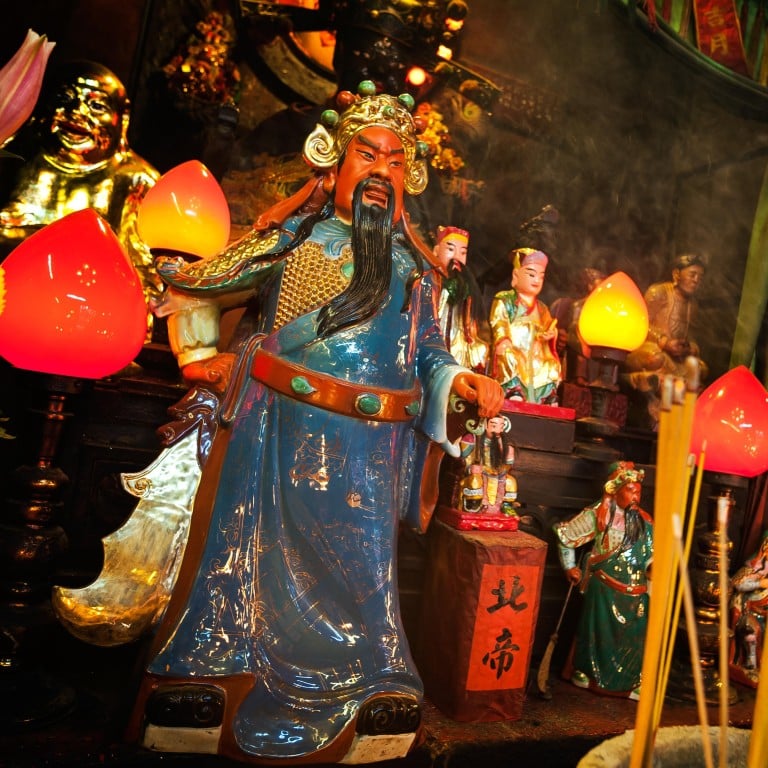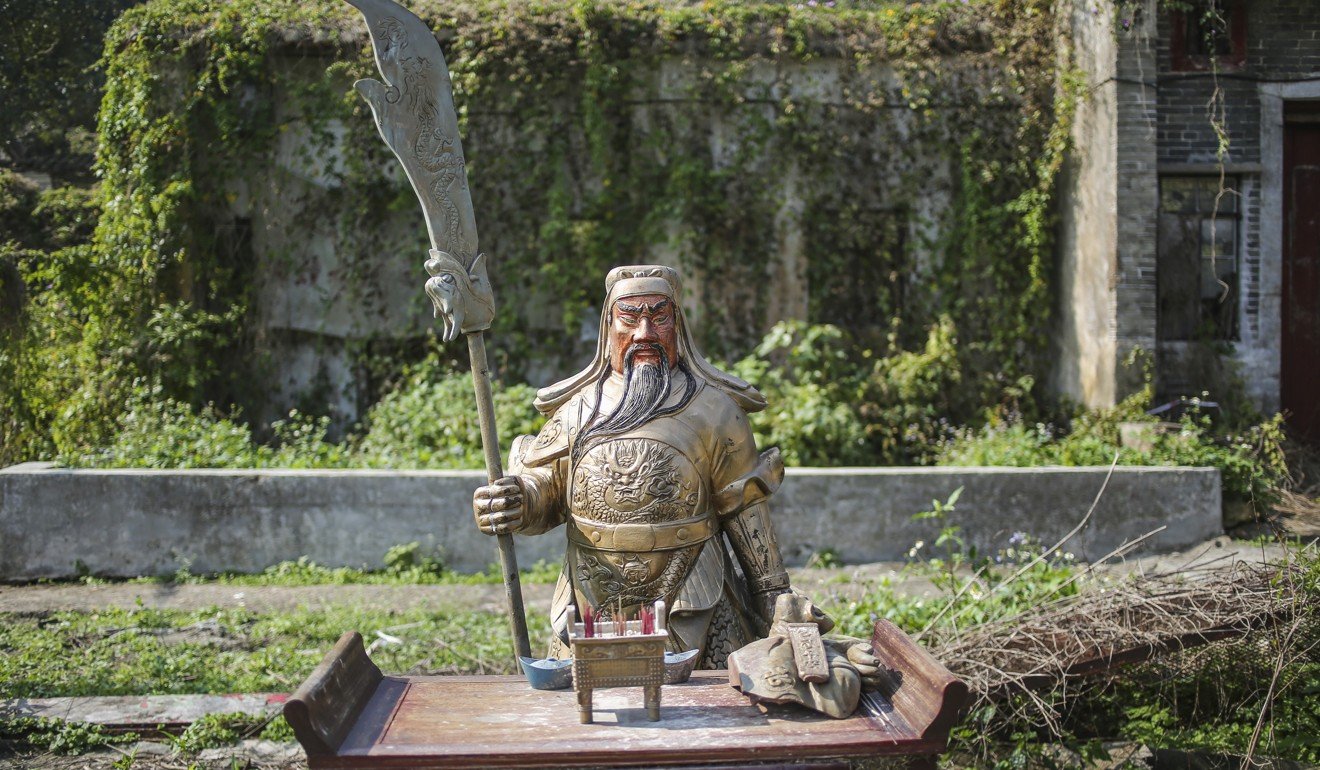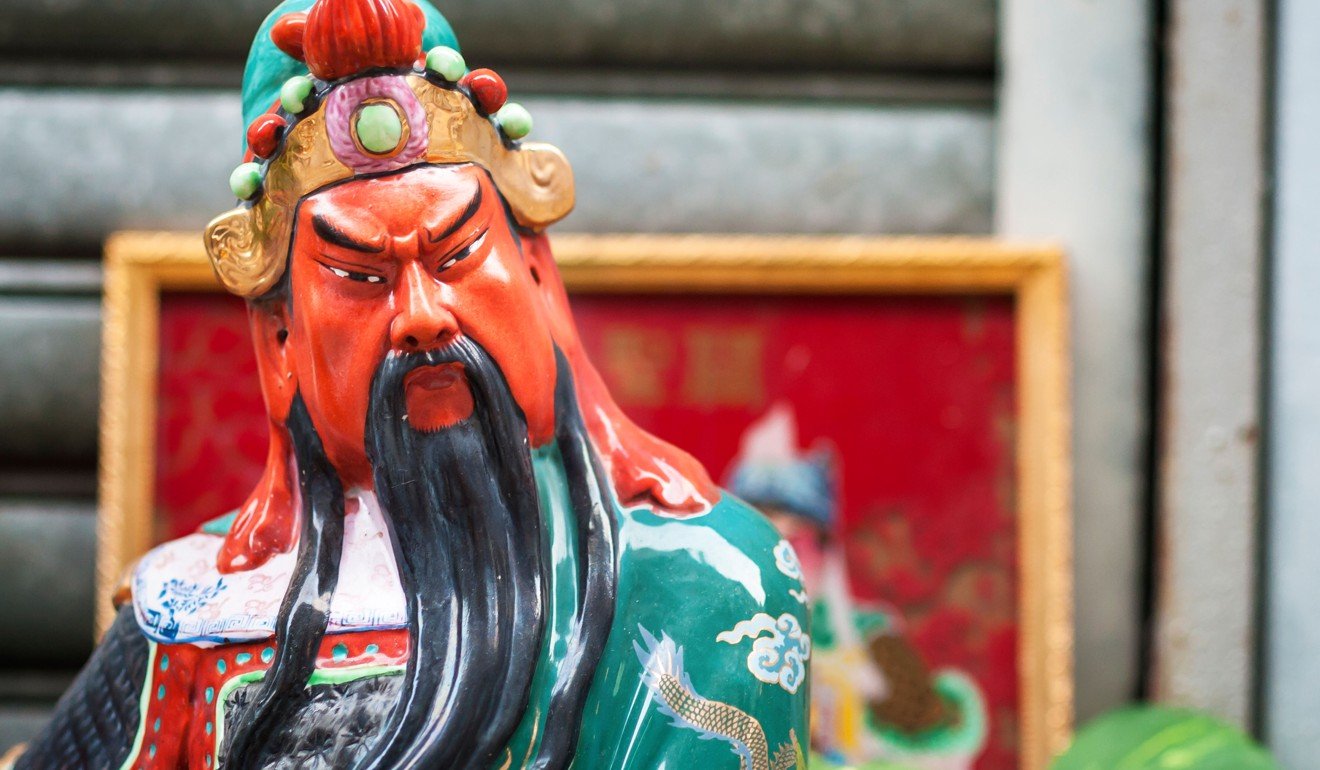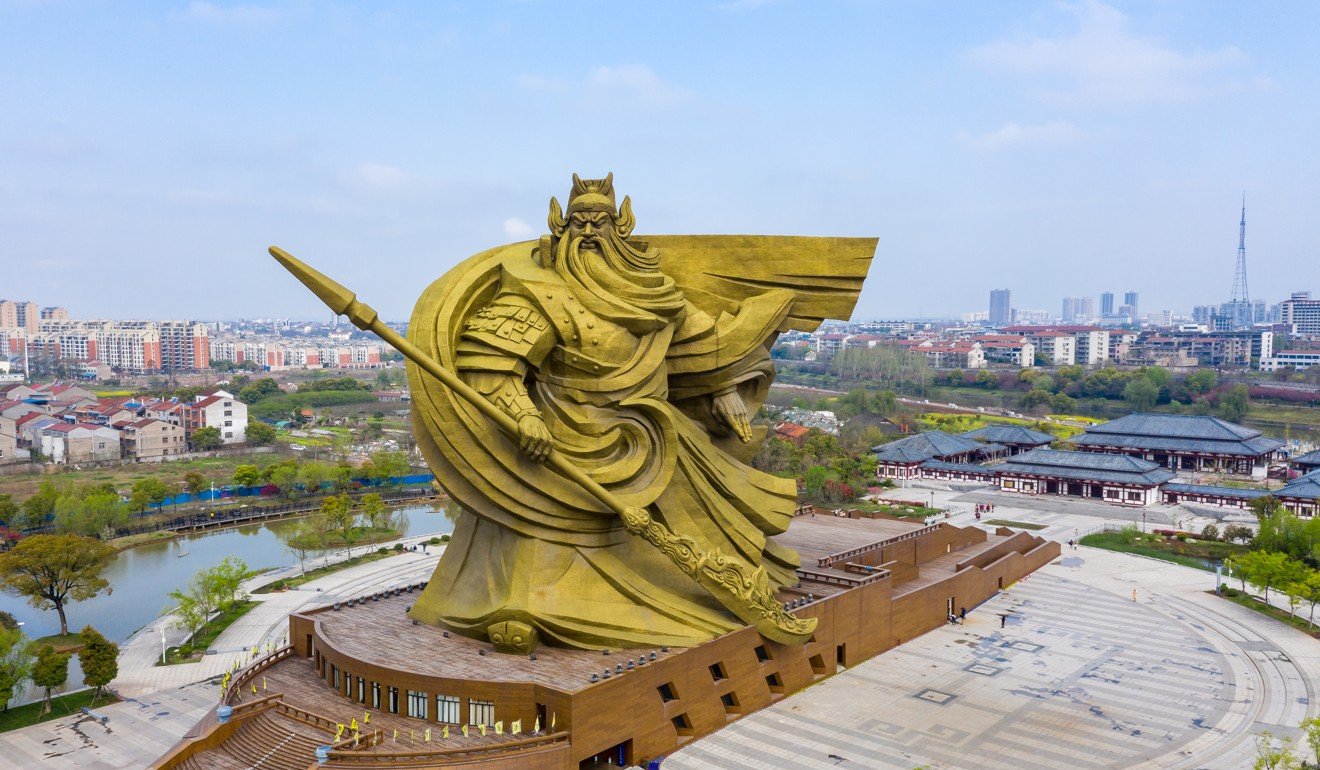
Why Guan Yu – warrior god known as Duke Guan – is worshipped in Hong Kong and Asia by police, gangsters … and businessmen alike
- The god was a historical figure, a third-century general named Guan Yu, famed for his loyal service to warlord Liu Bei
- Shrines to Duke Guan are common sight in shops, restaurants, police stations and gangsters’ hideouts, and he has numerous temples devoted to him
Hong Kong has a varied cast of ancient deities. But there is one god so popular that both police and gangsters worship him: Duke Guan, also known as Emperor Guan. He is not only a mythical character but also based on a historical figure, named Guan Yu.
Duke Guan features prominently in Hong Kong popular culture, from the famous Young and Dangerous film series to TV dramas. Shrines to Duke Guan are commonly found in restaurants, shops, police stations and even thieves’ lairs.

There are also numerous martial temples and shrines dedicated to the deity in Hong Kong, as well as across mainland China, Macau, Taiwan, South Korea and Japan. The New Territories alone has 13 temples dedicated to Duke Guan, compared with only three in his hometown of Yuncheng, Shanxi province.
This week, City Weekend explores this famous folk deity who straddles Buddhism, Taoism and Confucianism and is revered by followers.
How did Guan Yu become a god?
Guan Yu was a brave and loyal general serving under the warlord Liu Bei during the late Eastern Han dynasty of China. He was captured by enemy forces in an ambush, and executed in AD219 in Linju, Hubei province.
Guan Yu was not immediately treated as a god. In Linju, where he was executed, people first started to worship him out of fear. Because Guan had been defeated and executed, people were afraid that he would become a devil and do harm.
Having a long signature, hirsute beard, described as “peerless” in the Chinese historical text Records of the Three Kingdoms, Guan Yu has a majestic appearance in various Chinese folk stories and religions. His other iconic look is that of a face painted red, streaked with black lines, which symbolises loyalty and righteousness in Chinese opera. Most of the statues of him feature his ever-present trademark sword, the Green Dragon Crescent Blade.

The earliest origins of Guan Yu’s deification date back to the Sui dynasty (AD581-618) in the Buddhist tradition. His achievements were later glorified and elevated to an extent that seven emperors, eager to extol the values of loyalty and righteousness throughout their reigns, bestowed on him the longest posthumous title of a god, exceeding 24 Chinese characters, praising him as a great holy deity of war, supporter of peace and promoter of morality and righteousness.
Why is he worshipped across industries?
The worship of Guan Yu was commonly encouraged by emperors until the early Song dynasty. Folk culture had cultivated reverence for Duke Guan among the people, especially after Romance of the Three Kingdoms, a historical novel written some time between the late Yuan and the early Ming dynasty (1367–1399). Some emperors later resumed the worship of Duke Guan, due to Guan Yu’s good reputation throughout the empire.
At least 22 trades and industries worship Duke Guan, praying to him for health, family harmony, justice, marriage, fertility, prosperity and luck. Duke Guan is an almighty god customised to everyone’s needs.
How influential is he?
Being one of the most popular and influential deities of imperial China, Duke Guan has the same importance as the Buddhist bodhisattva Guanyin, or Kwun Yum, as known in Hong Kong. In Confucianism, he is of the same rank as Confucius. Lord Guan is honoured as one of the “Saints of War”, also known as the “Saint of Wu”, as a translation of the Chinese term reflecting the ability to use violence in a positive way, while Confucius is called a “Saint of Culture”. In Taoism, Guan Yu is a guardian deity.

Although it might seem ironic, both police and triads bow to statues of Guan Yu before going on their respective missions. The police regard Duke Guan as a saint signifying loyalty, righteousness, benevolence, bravery and credibility. A minor difference in the statues police and thieves worship is that the ones in police stations usually hold the blade in the right hand, while those used by triads wield it in the left, representing worship by the paths of justice and crime respectively.
Owners of shops and restaurants believe that putting a statue of Duke Guan in the home can bring prosperity, exorcise evil spirits and protect the house.

How might a warrior god bring prosperity?
It was understood that Guan Yu was good at managing finance and invented a special method of keeping accounts. He was thus regarded as an accounting expert by merchants and shopkeepers, honoured as a god of commerce. Guan Yu’s emblematic qualities of credibility and loyalty – much prized in trade – also made him a respected deity.
It is also said that Guan Yu’s spirit is always capable of fighting a victorious battle, which appeals to businesspeople who believe in never giving up.
Putting up a statue of Duke Guan can also improve the feng shui of a home as a way of protection. In addition, statues of Duke Guan were usually placed in hospitals and funeral venues, keeping people safe from disease and death. Some oppose this practice, saying this object of devotion is not the real historical Guan Yu but an imaginary figure of perfection.
Nonetheless, Guan Yu has long been a cultural symbol of loyalty and righteousness. It is this steadfastness that Hong Kong people also seek in their worship of the deity.
